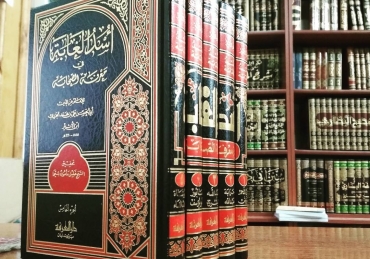Faḍāʾil Aʿmāl Ḥadīth Query
Question
It is stated in Faḍāʾil Aʿmāl on page 47 of the Chapter of Ṣalāh:
“A person neglecting his Ṣalāh (even though he makes it up later) shall remain in Hell for a period of one ḥaqb. A ḥaqb is equal to eighty years of three hundred and sixty days each, and a day in the Hereafter shall equal one thousand years of this world.”
According to the English translation, the source of this ḥadīth is Majālis al-Abrār. Please can you provide the source of this ḥadīth and state its authenticity.
بسم الله الرحمن الرحیم
Answer
The aforementioned narration has been mentioned in the following books:
- Majālis al-Abrār(Majlis number 50, p. 320) – By Imām Aḥmad al-Rūmī (d. ca. 1041/1631).
- Maktūbāt(1: 469) – By Mujaddid al-Alf al-Thānī, Shaykh Aḥmad Sarhindī (d. 1079/1668).
- Tafsīr Rūh al-Bayān(2: 276) – By ʿAllāmah Ismāʿīl Ḥaqqī (d. 1127/1715 or 1137/1725).
However, I have been unable to locate this particular narration in the books of ḥadīth and the aforementioned books do not provide a source or a chain. The authenticity of the narration can therefore not be confirmed and this should therefore not be regarded as an established ḥadīth. There are many ḥadīths that highlight the importance of Ṣalāh and the consequences for missing it. Shaykh al-Ḥadīth Ḥaḍrat Mawlānā Muḥammad Zakariyyā (d. 1402/1982) has mentioned some of these narrations in Faḍāʾil Aʿmāl.
It is also worth noting that Shaykh al-Ḥadīth Ḥaḍrat Mawlānā Muḥammad Zakariyyā (d. 1402/1982) writes after citing this narration (p. 231):
روي أنه عليه الصلوة والسلام قال: من ترك صلاة حتى مضى وقتها ثم قضى عذب في النار حقبا ، والحقب ثمانون سنة ، والسنة ثلاث مائة وستون يوما ، كل يوم كان مقداره ألف سنة ، كذا في مجالس الأبرار ، قلت: لم أجده فيما عندي من كتب الحديث ، إلا أن مجالس الأبرار مدحه شيخ مشايخنا الشاه عبد العزيز الدھلوي
“I have not found this narration in the books of ḥadīth that I have, except that the teacher of our teachers Shāh ʿAbd al-ʿAzīz al-Dehlawī praised Majālis al-Abrār.”
This statement affirms that the author was unable to locate this narration in the books of ḥadīth. Unfortunately, the English translation of Faḍāʾil Aʿmāl makes no reference to this important statement. This highlights the deficiencies within the English translation.
Allah knows best
Yusuf Shabbir
26 Muḥarram 1437 / 9 November 2015







Who are the leaders of the youth in Paradise: Abu Sufyan or Hasan and Husayn